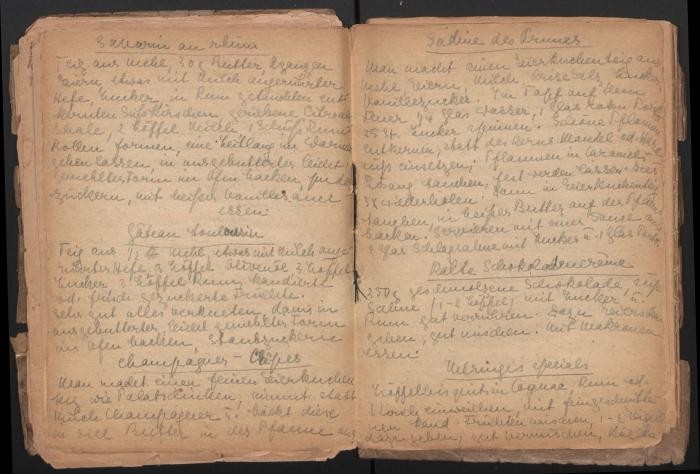
Eva Ostwalt was born in Cologne, Germany, to Jewish parents. She had two younger sisters, Kate and Trude. In 1927, Eva moved with her daughter, Heidemarie, and non-Jewish husband to Dresden. Eva and Karl later divorced, and Eva received custody of Heidemarie. Mother and daughter moved to Merano, Italy. When Eva’s passport expired in 1938, she had to return to Germany. Believing that Heidemarie would be safer with her father, Eva gave custody back to Karl in Dresden. Eva returned to Cologne, where both she and her mother Else were eventually caught by the SS. Else was sent to Auschwitz, where she was killed. Eva was sent to Ravensbrück in 1943.
Near the end of the war, she was forced on a death march, from which she escaped. Eva eventually returned to Dresden to find her daughter. She arrived to find the town in ruin from air raids, and learned that Heidemarie had died from the attacks.
This page comes from a cookbook Eva created while imprisoned in Ravensbrück.
What might have motivated people in camps and ghettos to collect and preserve recipes and create cookbooks under such difficult conditions?
What was the context of the Holocaust and World War II when this document was created?
What questions does this artifact raise for you?
What other source materials might be helpful to provide more historical context for this artifact? What aspects of the history might these other source materials help reveal?
We would like to thank Crown Family Philanthropies, Abe and Ida Cooper Foundation, the Claims Conference, EVZ, and BMF for supporting the ongoing work to create content and resources for the Holocaust Encyclopedia. View the list of donor acknowledgement.